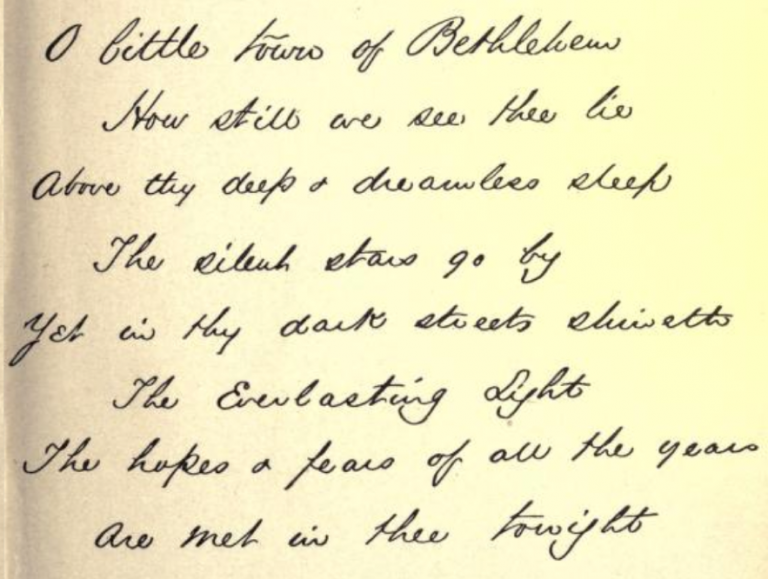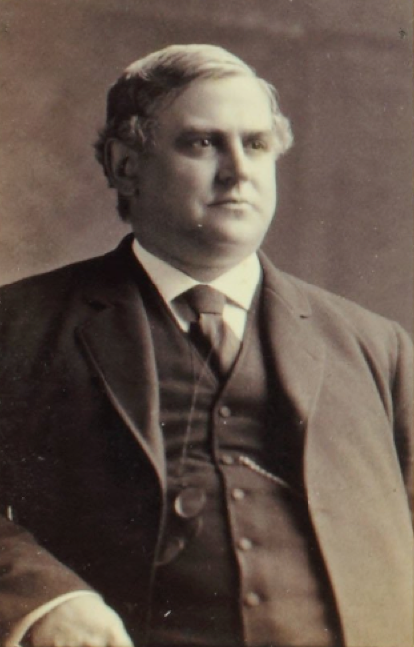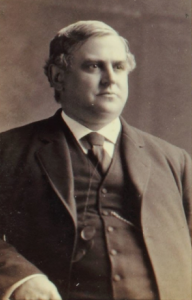O Little Town of Bethlehem
Essay
One of the best-known hymns of the Christmas season, “O Little Town of Bethlehem,” originated in 1868 as a poem written for the Sunday School of the Church of the Holy Trinity on Philadelphia’s Rittenhouse Square. The words by Rector Phillips Brooks (1835-93) and music by church organist Lewis H. Redner (1831-1908) resonated themes of stillness and peace in the aftermath of the Civil War.
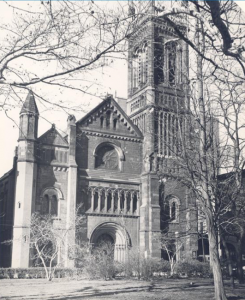
Born in Boston and educated at Harvard University, Brooks came to Philadelphia after his ordination as an Episcopal priest in 1859. He served first as rector for the Church of the Advent, York Avenue and Buttonwood Street, before moving in 1862 to Holy Trinity, then a new church (built 1856-59) in the area fast becoming the most fashionable in Philadelphia. A dynamic preacher, while still in his twenties Brooks rose in prominence as he preached forcefully against slavery during the Civil War, extended his ministry to African American troops in nearby training camps, advocated equal rights for freedmen, and became active in the Union League. At the end of four years of war, Brooks movingly eulogized Abraham Lincoln (1809-65) and the soldiers who gave their lives. The fallen included his brother George (1838-63), who died of typhoid while serving in the Union Army.
Brooks found the inspiration for his hymn after the war, during a year abroad (1865-66) in Europe and the Holy Land. While traveling, he wrote to the children of his parish about visiting Bethlehem on Christmas Eve and feeling reminded of the hymn-singing of his home congregation. It was not until three years later, however, in 1868, that he reflected on his experience by writing a poem for his Sunday School students, with the first stanza beginning: “O little town of Bethlehem, / How still we see thee lie! / Above thy deep and dreamless sleep / The silent stars go by.” The church organist, Lewis Redner, set the words to the music of a composition he had titled “St. Louis,” and the hymn had its first performance at Holy Trinity during the last Christmas season before Brooks left in 1869 to become rector of Boston’s Trinity Church.
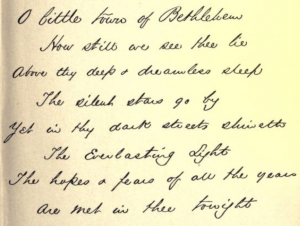
Brooks subsequently became better known for his service in Boston than his seven years in Philadelphia as he rose to become Bishop of Massachusetts and, among many other calls to preach, delivered a sermon for Queen Victoria in Westminster Abbey. Following his death in 1893, Bostonians memorialized Brooks in Copley Square with a monument by August Saint-Gaudens (1848-1907). “O Little Town of Bethlehem” lived on, sung in the United States in the form composed by Redner and in England to the tune of an English folk song, “Forest Green.” An early publisher of Brooks’s papers observed of the hymn, “It is an exquisitely simple thing, and yet one feels behind the words the existence of a great soul, meditating on the mystery of the divine revelation.” Composed in Philadelphia, published in hymnals for many denominations, and performed by musicians from Elvis Presley (1935-77) to the Mormon Tabernacle Choir, “O Little Town of Bethlehem” became an annual and beloved hallmark of the Christmas season.
Charlene Mires is Professor of History at Rutgers-Camden and Editor-in-Chief of the Encyclopedia of Greater Philadelphia. (Author information current at time of publication.)
Copyright 2018, Rutgers University
Gallery
Backgrounders
Connecting Headlines with History

